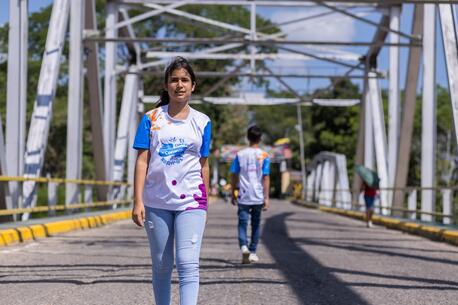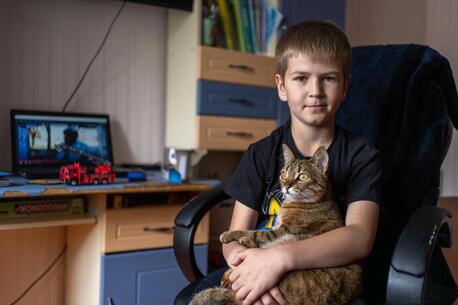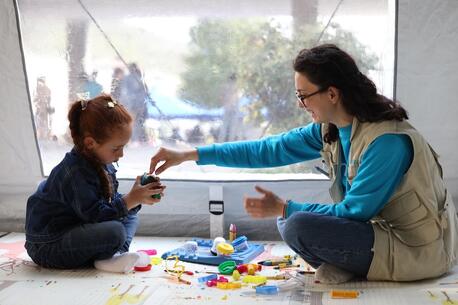
The Transformative Power of Investing in Children's Mental Health
Some impactful examples of how UNICEF and partners are providing mental health and psychosocial support to children and young people in Armenia, Belize, Nepal, Ukraine and other countries.
1 in 7 young people likely to struggle with mental health
For UNICEF, investing in child and youth mental health is essential not just for individual well-being but for the strength and resilience of entire communities.
Yet, millions of young people face mental health challenges without adequate support, potentially causing them harm and threatening their futures.
UNICEF works with partners to respond to the acute mental health needs of children and caregivers, prevent those challenges and promote child mental well-being.
Living through conflicts and disasters — experiencing the death of loved ones, separation from family members, suffering through poverty, homelessness, even loss of a daily routine — can have a devastating impact on children’s well-being and compromise their social, emotional and cognitive development.
For children in crisis, UNICEF provides spaces and activities to help children and families re-establish a sense of safety, strengthen social connections, regain a sense of control and develop a sense of hope to help them recover and build resilience. From Afghanistan to Ukraine, Myanmar to Sudan, UNICEF is reaching children in need of psychosocial support through health facilities, mobile clinics, schools and informal learning centers and child-friendly spaces.
UNICEF also works with governments and other partners to strengthen capacities within health, protection and education systems for addressing children's mental health needs.
This includes building effective child protection information systems that allow for effective case management, including referrals to health providers, counselors, social workers, legal advocates and other frontline workers. Frontline workers not only need to be able to deliver strong services, but also pick up on behaviors from children that might require referrals to more specialized care.
UNICEF also works with parents and caregivers to help them provide nurturing care and environments to children as well as to protect their own mental health. Other programs focus on promoting strong peer relationships and equipping young people with skills to talk openly about their emotions and stressors.
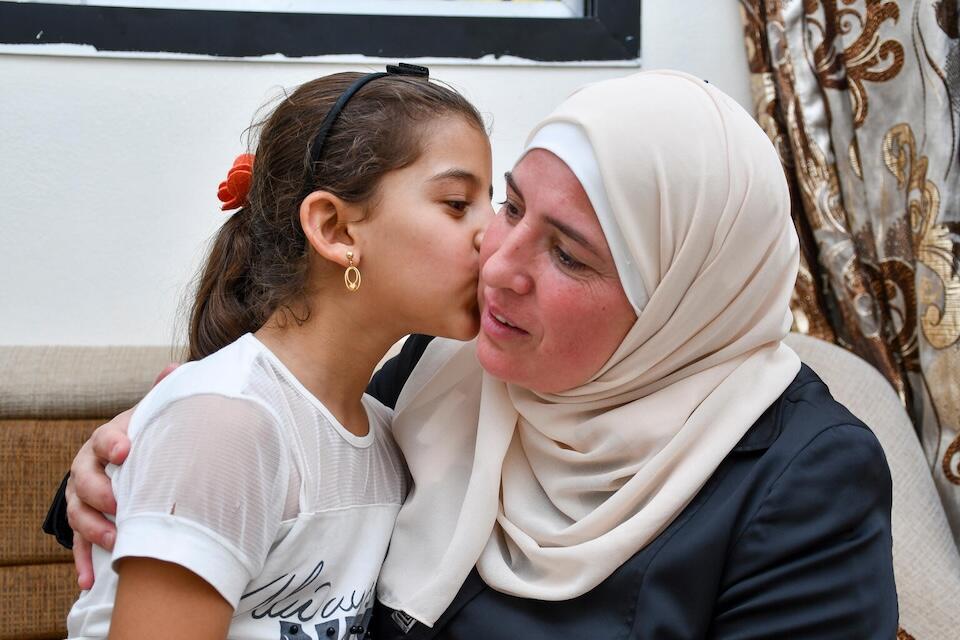
In 2023, UNICEF reached 34.7 million children and caregivers with mental health and psychosocial support services — a 37 percent increase from 2022 — in 130 countries where UNICEF works.
With partners, UNICEF continues to innovate and try fresh strategies for supporting youth mental health. Here are some promising examples of this work.
Supporting refugees in Armenia
UNICEF's focus in Armenia, with support from partners, has been on providing support to ethnic Armenian families who remain traumatized by their forced flight from the Nagorno-Karabakh region of Azerbaijan in September 2023, and who continue to struggle to rebuild their lives.
Psychosocial support programs for kids incorporate music and art as therapy. There are also special education sessions for parents and caregivers. Those reached through the sessions say they are learning how to better communicate with their children, process their own feelings and find the strength to go on.
Related: UNICEF in Armenia: Better Together, Today and Tomorrow
Socio-emotional learning for adolescents in Nepal
In Nepal, many mental health issues among children and adolescents go unrecognized and untreated. UNICEF and partners are working with the government to change that by training health workers to better identify mental health issues, introducing a new referral system to improve access to support services and teaching kids how to support their own mental health.
A pillar of UNICEF's mental health and psychosocial support programming is to create an enabling learning environment, embedding mental health literacy and social and emotional skills development into school curricula.
This approach is already helping students at schools across Nepal's Karnali province. Sessions introduce tools like the feelings chart. "We teach them techniques for managing stress," Dipa Pulami, a facilitator, explains. "They have found it very effective and can practice at home."
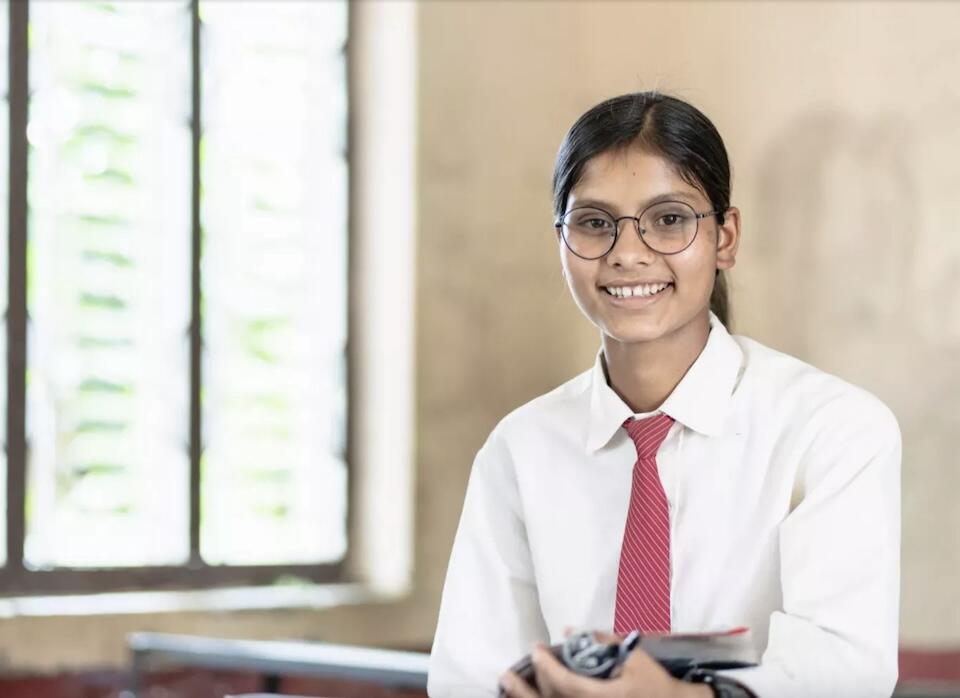
Srijana is one of the students participating in the socio-emotional learning sessions at Shree Sarada Secondary School in Nepal's Surkhet District.
"Before, I was constantly afraid," Srijana says. "I had lots of tears. Now, I first try to identify a problem. If it's something I can't address myself, I make sure to reach out, to a teacher, a friend, a nurse. It's a big change from before, and I see the change in my friends as well."
The best start for baby: mental health support for pregnant mothers in Belize
In many countries, supporting women’s mental health during pregnancy is often overlooked. Not anymore in Belize. With support from UNICEF and partners, mental health has been integrated as a standard part of antenatal care at all primary health care facilities. Health care workers are trained to conduct routine mental health assessments, promote best practices for positive mental health and refer women and adolescent girls to additional support services as needed.
This is especially important for adolescent girls because of the social stigma around teen pregnancy and the country’s high suicide risk among teenage mothers in the country. Depression among new mothers is also a common issue.
After a successful initial roll out, where UNICEF and partners helped develop and implement new tools and trainings, the government of Belize decided to scale the program nationwide.
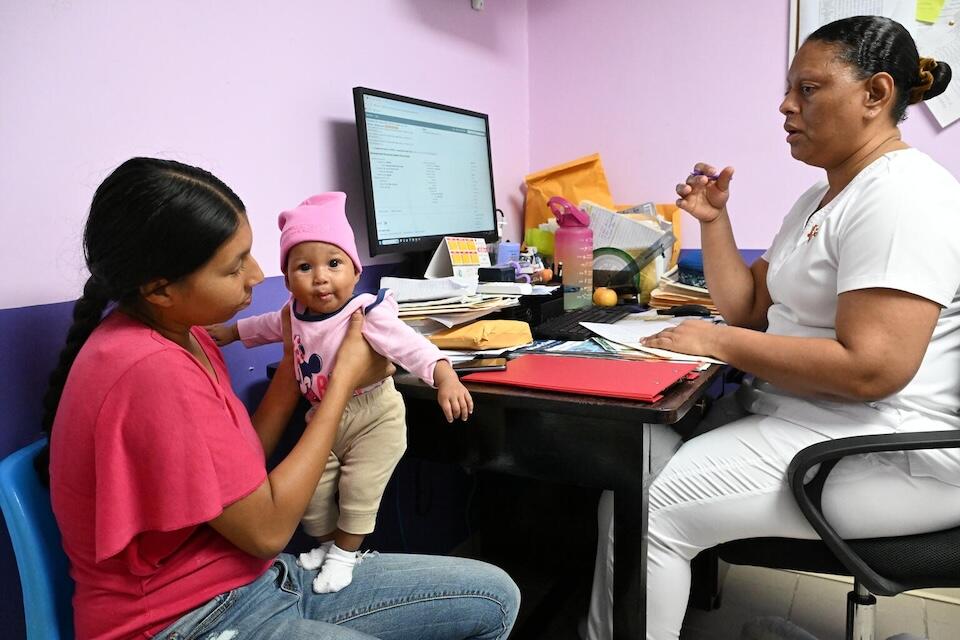
Connecting to youth through a popular digital music platform
UNICEF has partnered with popular music streaming service Spotify to support the mental health and well-being of young people through the power of music and a range of other audio content provided through a new Spotify channel called Our Minds Matter.
The partnership combines Spotify’s expertise in content and vast user base with UNICEF’s programmatic expertise in leveraging evidence-based approaches to support youth mental health.
On the Our Minds Matter hub, listeners can access the UNICEF On My Mind podcast, which has been co-created with young people and informed by evidence on mental health needs. The hub also includes music playlists curated by Spotify for relaxation and focus moments.
Episodes cover topics such as the stigma around talking about mental health, managing anxiety, coping with stress, nurturing healthy relationships, connecting with family, self-care and handling grief and loss.
Content in Ukrainian, Polish and English was developed first and released in June 2023, a response to the urgent mental health needs of young people affected by the war in Ukraine.
In May 2024, a Spanish version of the hub debuted in Argentina, Bolivia, Colombia, Guatemala, Mexico, Chile and Paraguay, followed by a Portuguese version in Brazil.
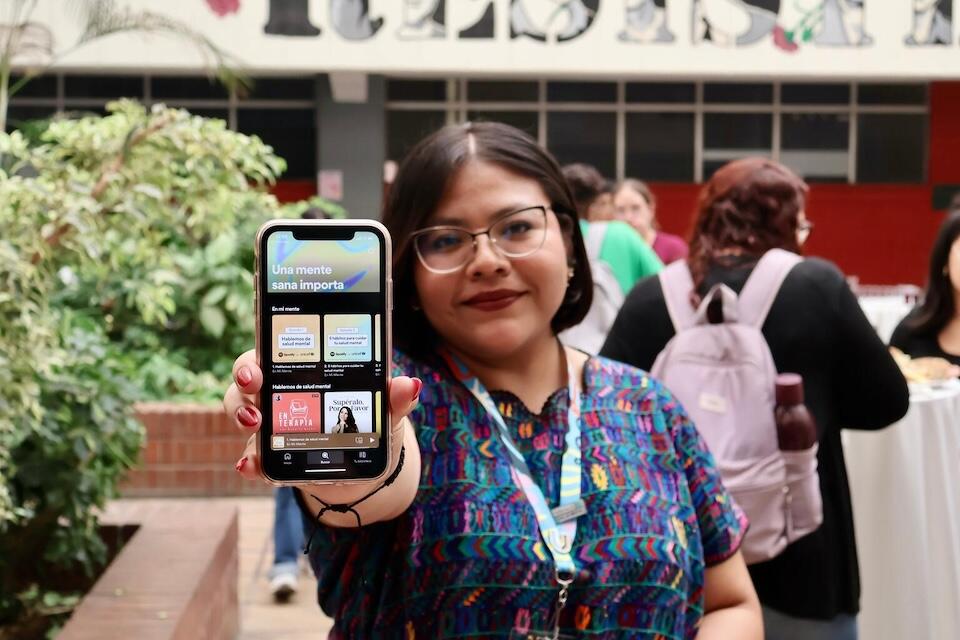
Mental health has been one of the most neglected, and least funded, global challenges. Investing in the mental health and psychosocial support of children, adolescents and caregivers advances UNICEF’s goals, including the collective work to achieve the Sustainable Development Goals.
Help UNICEF continue to break down barriers and strengthen essential systems for supporting children's mental health, so that every child has the opportunity to thrive. Support UNICEF. Donate today.
UNICEF leads the Global Coalition for Youth Mental Health. Learn more about this mechanism through which UNICEF and partners are making a meaningful difference for children and young people here.
Additional resources for parents and caregivers: Protecting Your Child's Mental Health at Every Age
HOW TO HELP
There are many ways to make a difference
War, famine, poverty, natural disasters — threats to the world's children keep coming. But UNICEF won't stop working to keep children healthy and safe.
UNICEF works in over 190 countries and territories — more places than any other children's organization. UNICEF has the world's largest humanitarian warehouse and, when disaster strikes, can get supplies almost anywhere within 72 hours. Constantly innovating, always advocating for a better world for children, UNICEF works to ensure that every child can grow up healthy, educated, protected and respected.
Would you like to help give all children the opportunity to reach their full potential? There are many ways to get involved.



